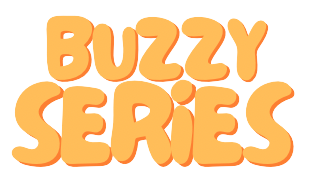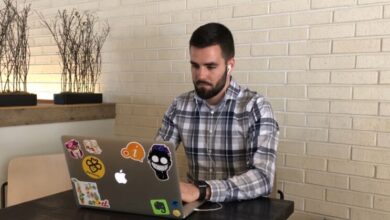Education Beyond Classrooms: Unlocking Lifelong Learning
In today’s rapidly evolving world, Education is no longer confined to the traditional boundaries of classrooms and lecture halls. It extends far beyond, encompassing a vast array of experiences, skills, and knowledge that individuals acquire throughout their lives. Lifelong learning has emerged as a pivotal concept in shaping not only personal growth but also societal advancement. This shift challenges conventional norms and encourages a deeper exploration of how learning can be continuously cultivated, irrespective of age or professional standing.
The process of acquiring knowledge in this modern age is not restricted by the rigid schedules and formalities often associated with institutional learning. Instead, it is driven by curiosity, adaptability, and the pursuit of self-improvement. Whether through online courses, professional development, or even informal exchanges, learning has become more accessible and diversified, providing people with tools to navigate an ever-changing world.
The Role of Technology in Modern Learning
Technological innovation has revolutionized how we learn. The advent of the internet, e-learning platforms, and digital resources has made knowledge readily available to anyone with an internet connection. Gone are the days when libraries and academic institutions were the sole gatekeepers of information. Today, individuals have access to an unprecedented wealth of resources, from academic lectures to hands-on tutorials, all at their fingertips.
Furthermore, the rise of mobile applications and digital learning platforms has democratized access to education, enabling people from all walks of life to engage in learning at their own pace. This freedom fosters a more personalized approach to education, where learners can choose subjects that align with their passions, career goals, or personal development needs. It also promotes continuous improvement, as individuals can update their skills in real-time, responding to the demands of an increasingly dynamic job market.
Expanding Learning Horizons through Travel
One of the most powerful, yet often overlooked, methods of learning is travel. By immersing oneself in different cultures, languages, and environments, individuals gain perspectives that no textbook or classroom can provide. Traveling offers real-world insights and fosters adaptability, resilience, and cultural awareness. These are invaluable skills that enhance both personal and professional life.
Exposure to new experiences while traveling allows learners to confront unfamiliar situations, encouraging critical thinking and problem-solving. Whether navigating foreign customs or engaging with diverse communities, the lessons gained through travel are often profound and long-lasting. It broadens the mind and instills a global perspective, crucial for succeeding in today’s interconnected world.
The Significance of Professional Development
In the professional realm, learning does not end upon graduation or after acquiring a particular qualification. Continuous professional development (CPD) has become essential in maintaining relevance and advancing one’s career. Many industries now require their workforce to regularly update their skills and knowledge, ensuring they stay competitive in the marketplace.
Professional learning can take many forms, from attending workshops and conferences to obtaining certifications or degrees in new areas of expertise. This practice not only enhances technical skills but also nurtures soft skills, such as leadership, communication, and emotional intelligence. As industries evolve, those who embrace lifelong learning are better positioned to innovate and lead in their respective fields.
The Importance of Mentorship and Peer Learning
Mentorship plays a pivotal role in education beyond the classroom. Learning from those with experience and wisdom can offer invaluable insights that formal training may overlook. Mentors serve as guides, helping individuals navigate complex challenges and offering advice that is grounded in real-world experiences.
Additionally, peer learning has gained traction as an effective tool for knowledge sharing. In both academic and professional settings, learning from peers fosters collaboration, broadens perspectives, and encourages critical dialogue. Through these relationships, individuals can exchange ideas, challenge assumptions, and collectively develop solutions to complex problems.
Learning Through Reflection and Experience
Learning is not solely about acquiring new information; it is also about reflecting on past experiences and drawing lessons from them. Reflection allows individuals to assess their decisions, actions, and outcomes, facilitating deeper understanding and personal growth. Experiential learning, which emphasizes learning by doing, is another powerful tool in this regard. Whether through volunteer work, internships, or community engagement, applying knowledge in real-world contexts deepens comprehension and fosters personal responsibility.
This type of learning builds confidence and prepares individuals for the complexities of real-life situations. Moreover, it underscores the importance of adaptability, as individuals learn to navigate the unpredictable nature of applied work and develop solutions on the fly. As such, experiential learning is essential for personal and professional advancement.
The Future of Lifelong Learning
As the world continues to change, the need for ongoing learning will only become more pronounced. The future of work, marked by advancements in automation and artificial intelligence, will require individuals to continuously adapt and refine their skills. Those who commit to lifelong learning will not only survive these changes but thrive in them.
Institutions, employers, and governments are increasingly recognizing the importance of lifelong learning. Many are investing in programs and initiatives that promote continuous education, understanding that a well-educated and adaptable workforce is critical for long-term success. As such, the future will likely see a more integrated approach to learning, where formal education is complemented by ongoing skill development throughout an individual’s life.
The concept of education has evolved far beyond the walls of classrooms, embracing a lifelong approach to learning that empowers individuals to continuously grow and adapt. Through technology, travel, professional development, mentorship, and experiential learning, people are gaining the skills and knowledge necessary to navigate an increasingly complex world. This broader understanding of learning encourages a mindset of curiosity and resilience, vital for both personal fulfillment and professional success.








